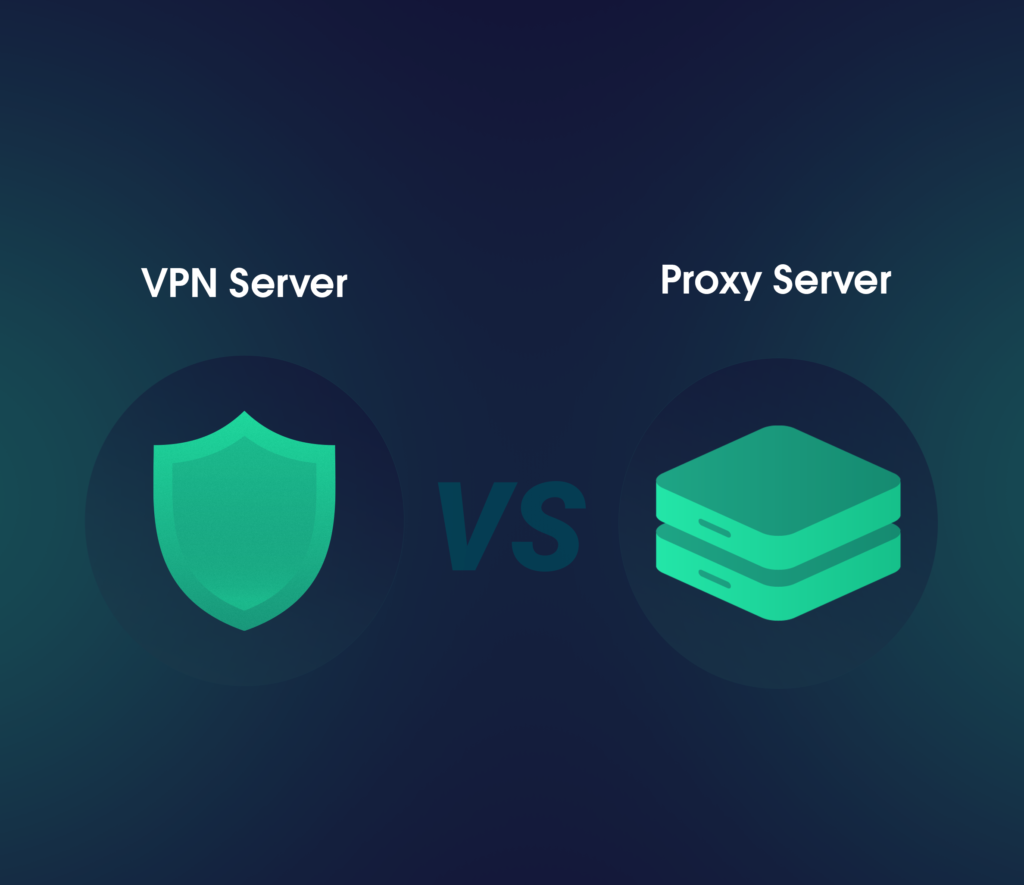

The internet is a wonderfully scary place. Surely, we can’t live without it, however, if privacy and security are important for you, perhaps you came across these two terms – Proxy and VPN.
Whether you did or not, while you’re still here, let’s cut straight to the chase.
Both Proxy and VPN, in essence, have a mutually shared purpose – to enhance privacy and security levels of end-users. They do have similarities and also differences. Once you thoroughly understand them, and perhaps, most importantly, recognize what your exact needs are, it will be easy to pick one over another.
Definitions
Proxy, also known as a proxy server, acts as a middleman (changes the original user’s IP address) that processes internet requests on the user’s behalf.
A Virtual Private Network (VPN) is a private network that operates over a public infrastructure, which allows end-users to send and receive encrypted internet requests (without exposing the real IP address) across public networks.
It’s All About Your IP Address
Every time you go online, either your Internet Service Provider (ISP) or the website that you visit, track your behavior online. How do they do it? By identifying your device via its IP address.
Every IP address consists of those somewhat confusing, yet magical bunch of numbers that allows devices on the internet to communicate with other online resources. The fact is that an IP address is necessary to operate online. The downside is that this IP address not only allows to identify the device but it also enables to pinpoint geographical location, sometimes even to a street level.
Hence, for privacy-conscious internet users, there is a need to add an extra layer of anonymity and security by masking their real IP address while they are surfing the world wide web.

Proxy vs VPN: Similarities & Differences
So, a proxy acts like a web filter that performs the internet requests on your behalf, meaning that the website that you are visiting will only be able to determine the proxy IP address. What’s more, if the proxy server is correctly configured, it can also encrypt the internet requests, which would subsequently would enhance the user’s security levels. Additionally, since they are tied to a specific geo-location, proxies make it easy to unlock geo-blocked content.
Taking a step further, proxy use is widespread within businesses that perform online data gathering tasks. Without getting too technical, a common challenge by data hunters is to successfully extract necessary data from the desirable websites without getting blocked. The use of significant quantities of proxies (which provides multiple IP addresses), allows collecting a vast amount of data without raising any suspicions to the desired source.
A VPN, just like the use of a proxy, will make a user’s internet requests look like they are coming from a different IP address. What’s more, the use of a VPN considerably secures the end-user, as internet requests are heavily encrypted between the user’s device and remote network. Just like in the case with proxies, VPN services will also allow accessing geo-blocked content.
However, unlike a proxy server, a VPN covers all outgoing internet connections from the user’s device (not just from the browser). Whereas, the encryption factor that a VPN provides is one of the most distinguishing features in comparison to a proxy.
What’s more, the use of a VPN within a business is rather rare. Perhaps, it can be argued to be useful by protecting employees while they are connected to public networks, e.g. coffee shop’s WIFI. Other than that, it is not a suitable tool, unlike proxy, to successfully gather data online, as it doesn’t have a feature to provide more than one different IP address.
Which One Is Right for You?
Hopefully, by now you have a decent understanding of both terms and also starting to realize the key difference. If you are still struggling, this proxy provider’s blog post states the following:
VPN service is mostly oriented to a single user and is used by individuals who are looking to not only mask their true identity but also to make sure that their internet requests are encrypted.
While a proxy or a proxy server also allows achieving anonymity, but is most commonly used by individuals and organizations (in significant quantities) that are performing web scraping operations.
Source: Oxylabs.io
Here you go, if you are looking to improve privacy and security on the individual level, then VPN is the right choice for you. On the subject of the use of a proxy, it does indeed provide some level of anonymity and security, however not to the extent that a VPN does. So, if you are an individual or a business that performs web scraping operations to gain invaluable insights and trends, proxies are the way to go.
Final Thoughts
If you run into discussions online on VPN vs Proxy (which is better), turn a blind eye and mind your own business. Even though both terms have a shared purpose, they also have a key difference. A VPN service is heavily oriented to regular internet users. Whereas, the use of a proxy also provides anonymity and somewhat increased security levels but is mostly geared towards individuals and businesses that perform web scraping operations. Hence, it is almost impractical to compare these services since they are essentially meant for different audiences.
Whether it would be a VPN or a Proxy service that meets your needs online, make sure to check the providers thoroughly. Don’t be afraid to pay these providers for their services, after all, you are securing yourself or successfully performing web scraping tasks online. What’s more, stay clear of free VPN or Proxy services, as more often than not they have a hidden agenda that might further sabotage your efforts to stay safe online.